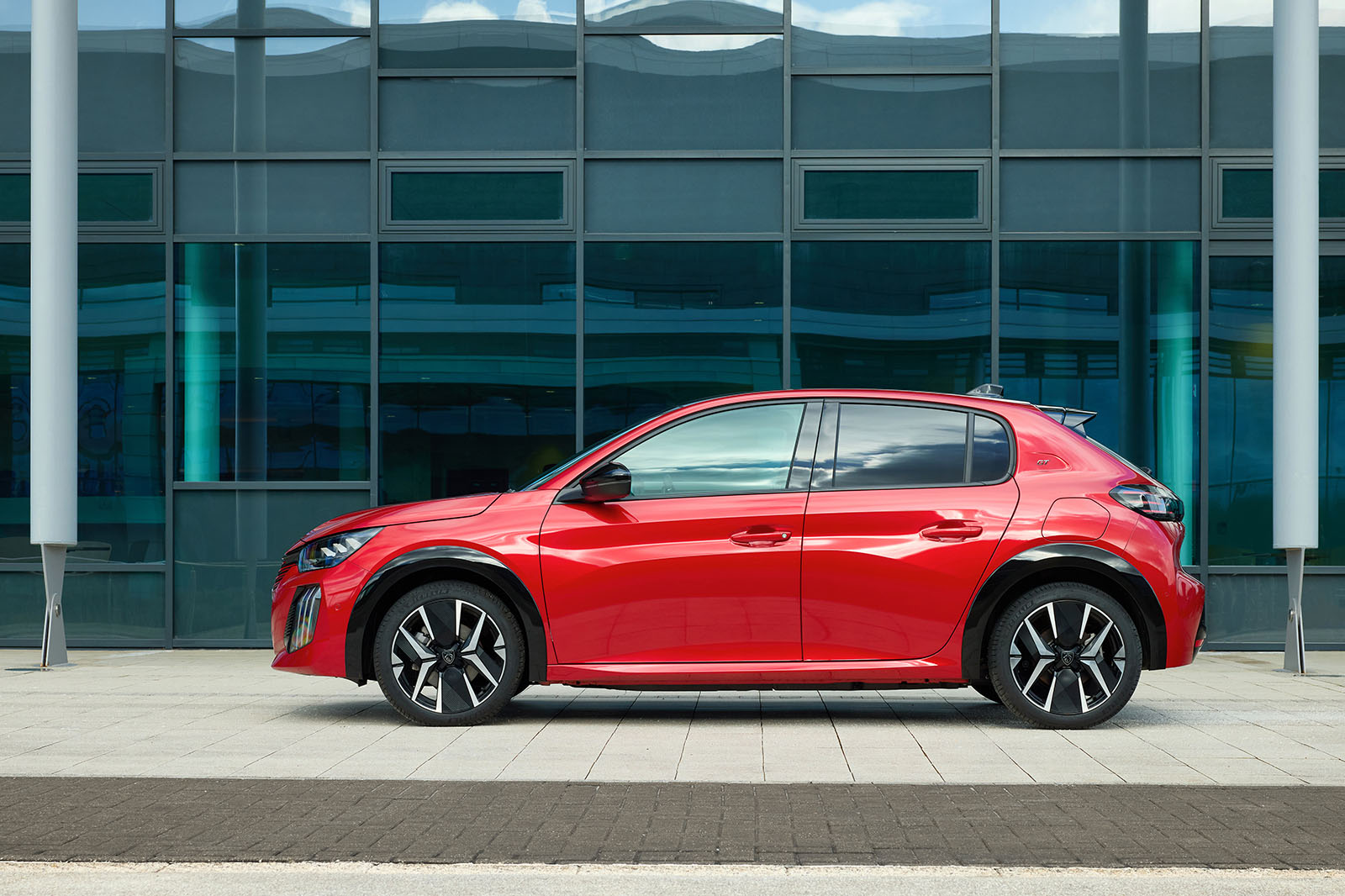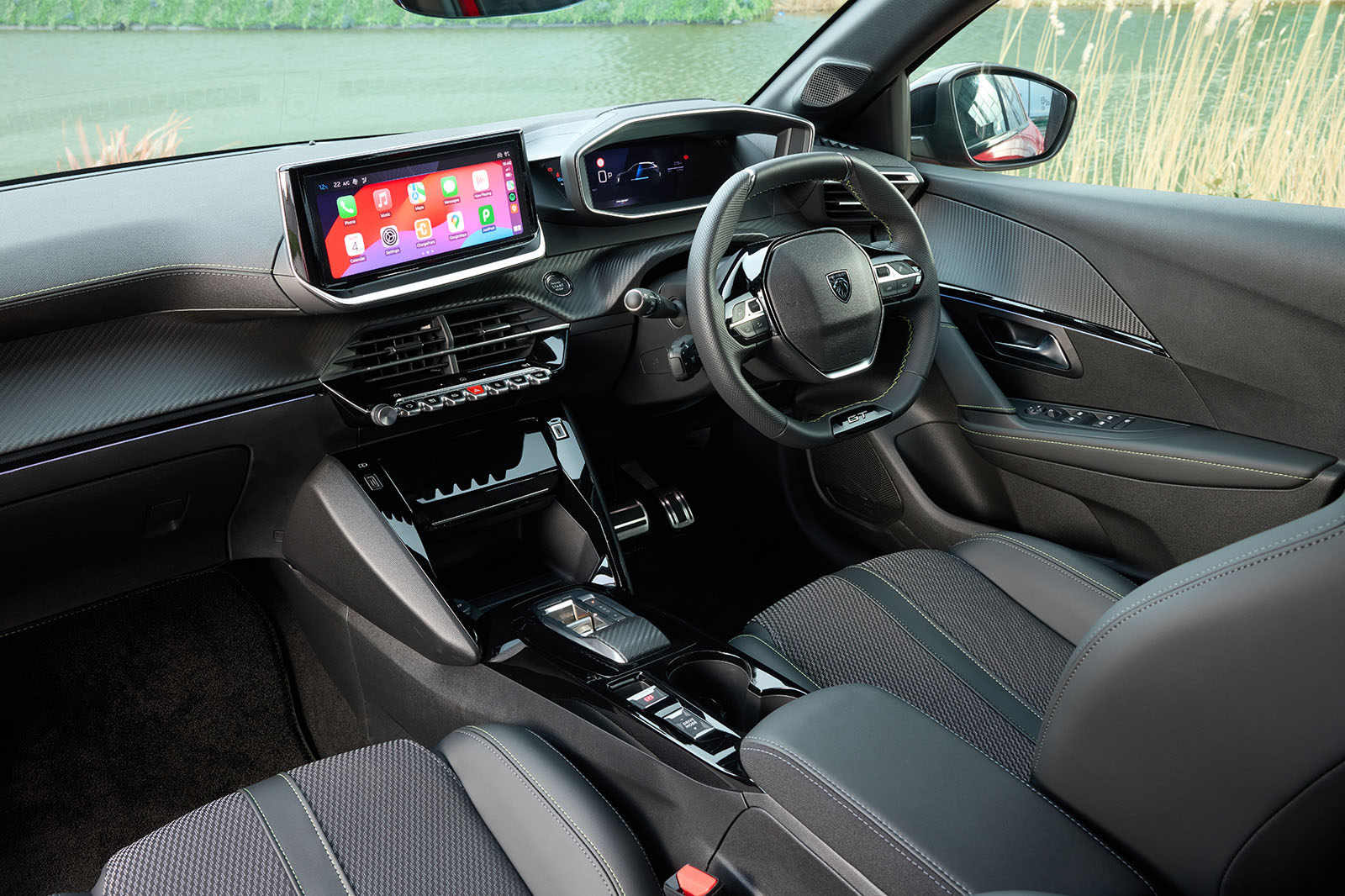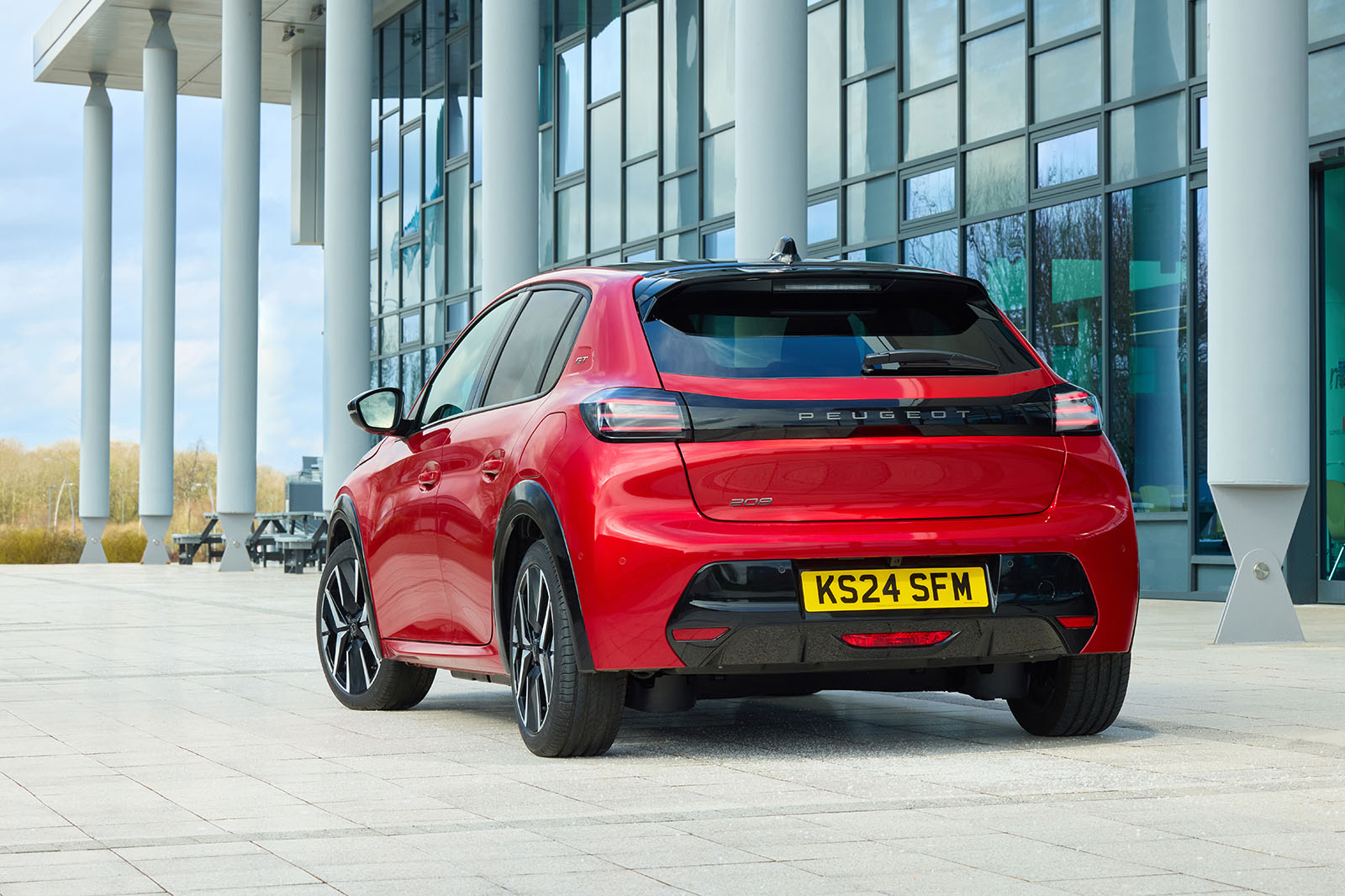The interior and equipment levels in the GT model are hard to fault and it feels top-notch in quality, bar the odd questionable plastic low down, especially for a car of this class.
On first entry to the car, the set-up all feels intuitive, as it should be. The layout is aesthetically pleasing, the 10in infotainment touchscreen seems ample and there are toggle switches below it for some of the key functions. And there’s a ‘home’ button to get back to a main starter screen, which is something simple but much needed and missing in some cars today.
The inability to change interior temperatures anywhere other than the touchscreen grates, but this has been the case in Peugeots for some time now.
There's Apple CarPlay - which took a little longer than expected to connect to - and Android Auto mirroring, USB-C ports in the front and USB-C and USB-A ports in the rear, wireless smartphone charging, parking sensors, a rear-view camera and much more.
This tester has long struggled with driver position in Peugeots, which means not being able to fully see the instrument panel when having the steering wheel situated appropriately. Whether it suits you is a personal thing.
Despite its supermini status, the 208 has sufficient space in the front even for tall drivers, although rivals such as the Polo do offer more head room.
The same is true in the rear: taller passengers have just about enough head and leg room, although the relatively narrow door apertures means ingress and egress aren’t the most effortless.
There’s also a respectable 311-litre boot – slightly less than in the Polo or Seat Ibiza but still viable for most scenarios. The design of the boot means it has a narrower opening than some, so pack smaller bags because large items might prove a struggle.



























